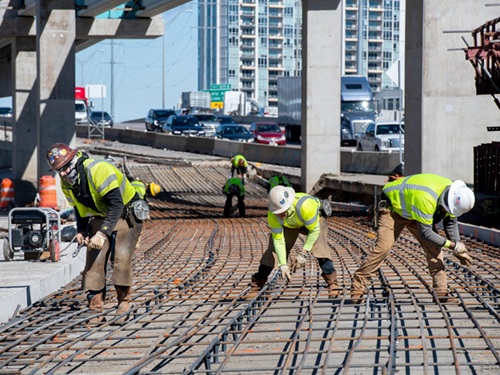Several transportation organizations are urging the Federal Highway Administration in a letter sent this week to ensure timely publication of a new edition of the Manual on Uniform Traffic Control Devices or MUTCD.
[Above photo by the Oregon DOT.]
“We encourage you to stay the course in obtaining public comment on the NPA [Notice of Proposed Amendment] and expediting the issuance of a new MUTCD,” the American Association of State Highway and Transportation Officials, the Institute of Transportation Engineers, and the National Committee on Uniform Traffic Control Devices urged in a March 11 letter to the FHWA.

“Rescinding the NPA and starting over again, as some have recently suggested, risks not only negating years of important work by FHWA and countless volunteers but also misses the opportunity to save lives now,” those groups warned. “We support a full reexamination of the structure, process, and content of the MUTCD, but not at the expense of delaying a new edition.”
[Editor’s note: FHWA is hosting three webinars to discuss its proposed MUTCD revisions; webinars the agency will record. Click here for more information.]
AASHTO, ITE, and NUCTD also pointed out that due to the “rapid evolution of transportation technologies and services,” the current process of creating wholly new MUTCD editions every 10 years is insufficient.
“We must also ensure it [the MUTCD guide] is meeting the needs of all users of the transportation system in an equitable and consistent manner,” they added. “This is a significant undertaking that should not be rushed. However, it does not need to wait until a new manual is published to begin.”
AASHTO, ITE, and NCUTCD also noted that, during the past decade alone, there have been many advancements in transportation research, technology, practice, and services not reflected in the current MUTCD.
“These advancements, if well-integrated into the next edition, have the potential to save numerous lives and prevent serious injuries on the nation’s transportation system,” they said.



